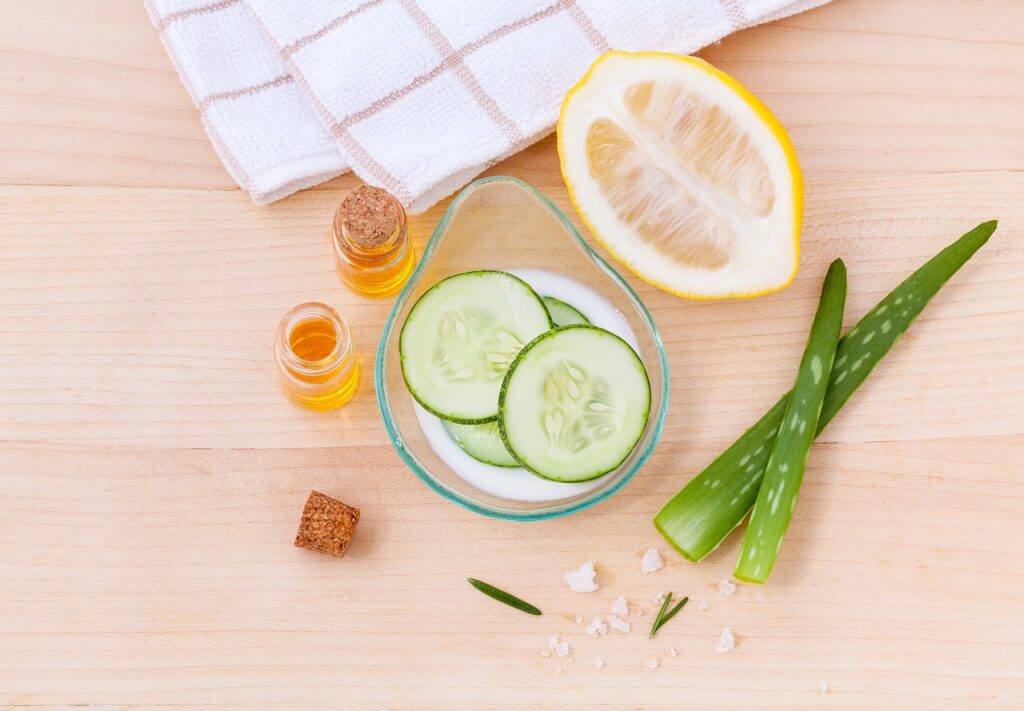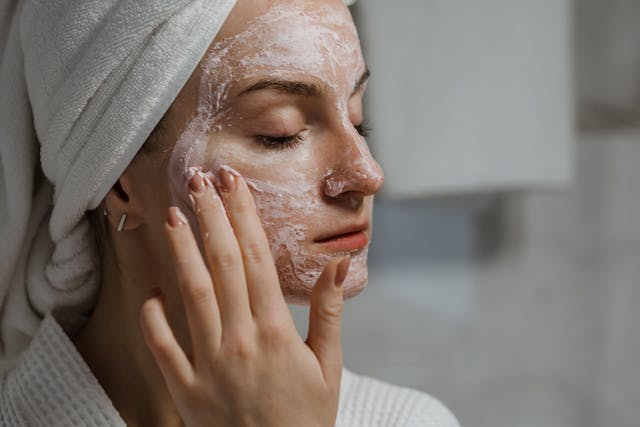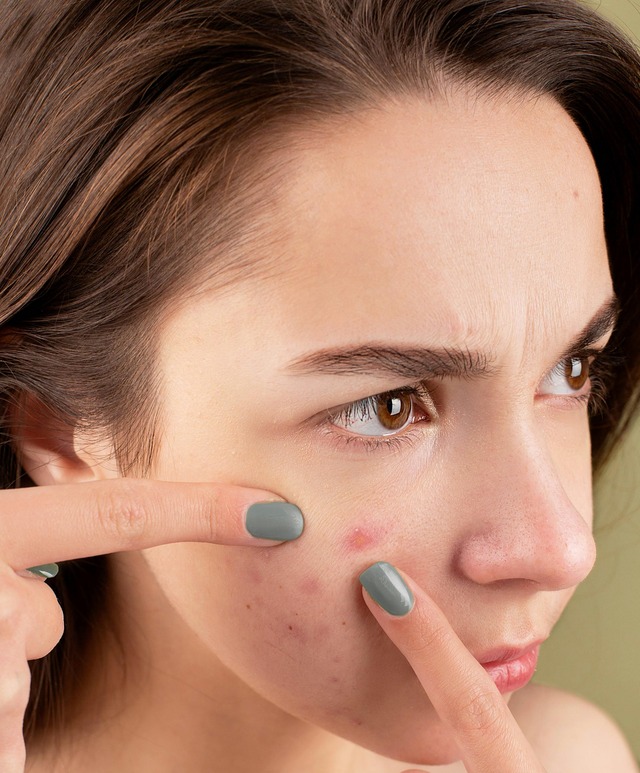- Introduction
- Stop harshly cleansing your skin
- Do not self-medicate for acne
- Don't sunbathe
- Stop experimenting
- Phone screen
- Makeup brushes and sponges
- Chose your product carefully
- Daily skin care should include the following steps
- Ingredients that provide extra effect on the skin
- Few things we should know
- Conclusion
Introduction
If there’s one thing we know about skincare, it’s that the perfect routine is different for everyone. Each of us has unique skin, which can be challenging for beginners. We are ready to invest a huge amount of effort, time, and money in achieving this dream, visiting cosmetologists and plastic surgeons, trying various procedures, and buying expensive creams – just to achieve the ideal. let’s find out the details for skincare for the beginner.
Stop harshly cleansing your skin
Often, in the struggle for beautiful, clean skin, we go too far. We use aggressive cleansers, after which, as it seems to us, the skin truly becomes clean, you can often hear the expression “It’s already cracking.”When the entire protective layer has been washed away from the skin, it is overdried and produces fat to recover actively. As a result, this leads to the early formation of wrinkles, acne, and inflammatory elements.
A similar effect can be achieved with excessively active use of scrubs. Scrubs are generally prohibited if you have dry, sensitive, or inflammatory skin. Various devices for mechanical cleansing have an even more aggressive effect on the skin: abrasive sponges, and skin brushes, with which we mercilessly rub our face.
Do not self-medicate for acne
No one is happy with pimples and “black spots” on the skin. Your hands are reaching out to squeeze them out, and advertisements for numerous products promise that if you just buy this magical lotion/ointment/cream, everything will go away in literally 5 minutes. Unfortunately, if everything were so simple, there would be no people with problem skin at all – where would they come from if you can get rid of any pimple so easily and quickly?
Don’t sunbathe
The sun is one of the most formidable enemies of our skin. Excessive exposure to ultraviolet radiation leads to photoaging, hyperpigmentation, thinning, and skin drying. The saddest thing is that the damage accumulates gradually, and you can enjoy sunbathing for quite a long time before, at one far from wonderful moment, you notice that the quality of your skin has sharply deteriorated, many wrinkles have appeared, elasticity has been lost, and unsightly spots have appeared on it. It is very, very difficult to get rid of the consequences of overusing the sun’s rays.
Stop experimenting
Trying something new is always interesting for skincare. But experiments, especially in the field of skincare and health, only sometimes lead to good results. The Internet and the pages of magazines are full of various tips: smear your face with kefir, oatmeal, and strawberries, make onion masks for your hair (yes, grate onions and spread on your hair: the effect, and most importantly – the smell – is amazing), crumble aspirin tablets and lubricate with its heels, buy this “unique” cream with an incomprehensible composition on a Chinese website.
We think there is no need for skincare routine to continue – everyone has come across these tips many times. And surely every girl can tell a couple of funny or sad (depending on the consequences) stories about her cosmetic experiments. At best, with such experiments you will simply waste time and money, at worst, it will take a long and difficult time to treat damaged skin.
Phone screen
Regularly wipe your phone screen with special wipes. It has already been proven that more bacteria accumulates on your phone than on a toilet seat! And if you don’t want it all on your face – and with a high probability of causing skin irritation – make it a rule to keep your phone clean.
Makeup brushes and sponges
All makeup products should be thoroughly cleaned regularly. Brushes and sponges are constantly in contact with our skin, and sebum, dust, and cosmetic residues accumulate on them – all this is a fertile environment for microbes. Therefore, be sure to wash all your brushes with detergent from time to time and dry them thoroughly. Sponges and sponges can be placed in the microwave for a minute after washing for additional disinfection.
Chose your product carefully
A good skincare routine consists of five or six different products to invest in. Cleansing in some form, day and night cream, sunscreen, and a toner or serum. There is a lot of debate about whether or not active ingredients work and the simple answer is that if a product works so that you notice it almost immediately, then it is not a cosmetic product but is probably pharmaceutical grade.
Daily skin care should include the following steps
Cleansing
Wash your face morning and evening with a mild cleanser in your skincare routine. This is a mandatory point – we live in a big city, and dust, dirt, grease, and sweat accumulate on the skin. It is imperative to cleanse your face of makeup every evening; under no circumstances should you go to bed wearing makeup – this is very harmful to the skin. It is better to remove makeup using special products, micellar water, or hydrophilic oil.
Toning
After washing, wipe your face with a cotton pad and toner. This way you will further cleanse your skin and at the same time take care of it. Tonic not only helps remove remaining impurities but also cleanses pores, and evens out skin tone and texture, making further care more effective. Choose a toner taking into account the characteristics of your skin, with acids for problem skin, with vitamins or oils.
Moisturizing
The last stage of daily skincare is moisturizing and nourishing the skin. A properly selected cream can work wonders – with regular use, your skin will always be moisturized, well-groomed, and protected.
In the morning, after the moisturizing step, do not forget to apply sunscreen (if your day cream does not contain sunscreen).
Ingredients that provide extra effect on the skin
Glycerin and urea in skincare routine
Strengthens the skin’s barrier function, which protects the skin from the outside world. Can also counteract dryness wrinkles, which in the long run can develop into deeper wrinkles.
Retinol (vitamin A) for skincare routine
With long-term use, retinol stimulates the production of collagen and elastin in the skin, which makes the skin look smoother with fewer wrinkles. The vitamin is easily destroyed by UV exposure and can be irritating in too high concentrations.
Niacinamide (vitamin B3)
Improves the skin’s barrier function and reduces the skin’s water loss, which increases with age. Affects irregular pigmentation and reduces sebum production.
Ascorbic acid (Vitamin C)
Can produce fewer wrinkles at a high concentration. Requires three months of treatment to be effective. Difficult to stabilize in products so that it is potent.
Vitamin E
A strong antioxidant that can reduce damage from the sun and has positive effects on dry skin, eczema, superficial burns, wounds, and other skin conditions triggered by inflammation.
Acids
Acids smooth the skin, but also thin it, which can make it extra sensitive to sunlight. It can cause an increased amount of pigment spots if used incorrectly. AHA (Alpha Hydroxy Acid), including glycolic acid and lactic acid, BHA (Beta Hydroxy Acids), including salicylic acid and PHA (Poly Hydroxy Acids), including gluconolactone and lactobionic acid. The acids PHA do not give the same sensitivity as AHA and BHA.
Few things we should know
In the EU the ingredients are under strict supervision, but in the US the cosmetics laws are from 1938 and not nearly as strict so you can click home products with everything from TCA acid, and hydroquinone (whitening), and in the EU banned sunscreens. The ingredient that suggested the best effect is B3 {Niacinamide} and creams with BHA acids.
Retinol products require tremendous persistence. Several months of regular application. Use your common sense. The skin’s job is to shut out things that should not enter our bloodstream. So there is not much that can get into the skin.
Conclusion
Starting a skincare routine can feel confusing, but understanding some basics can help you achieve healthy skin. The key is to keep it simple and consistent. Use gentle cleansers, avoid picking at your skin, and protect yourself from the sun. Regularly clean your phone and makeup tools, and choose products with helpful ingredients like glycerin, retinol, and niacinamide. By being patient and making smart choices, you can build a routine that keeps your skin looking great.


